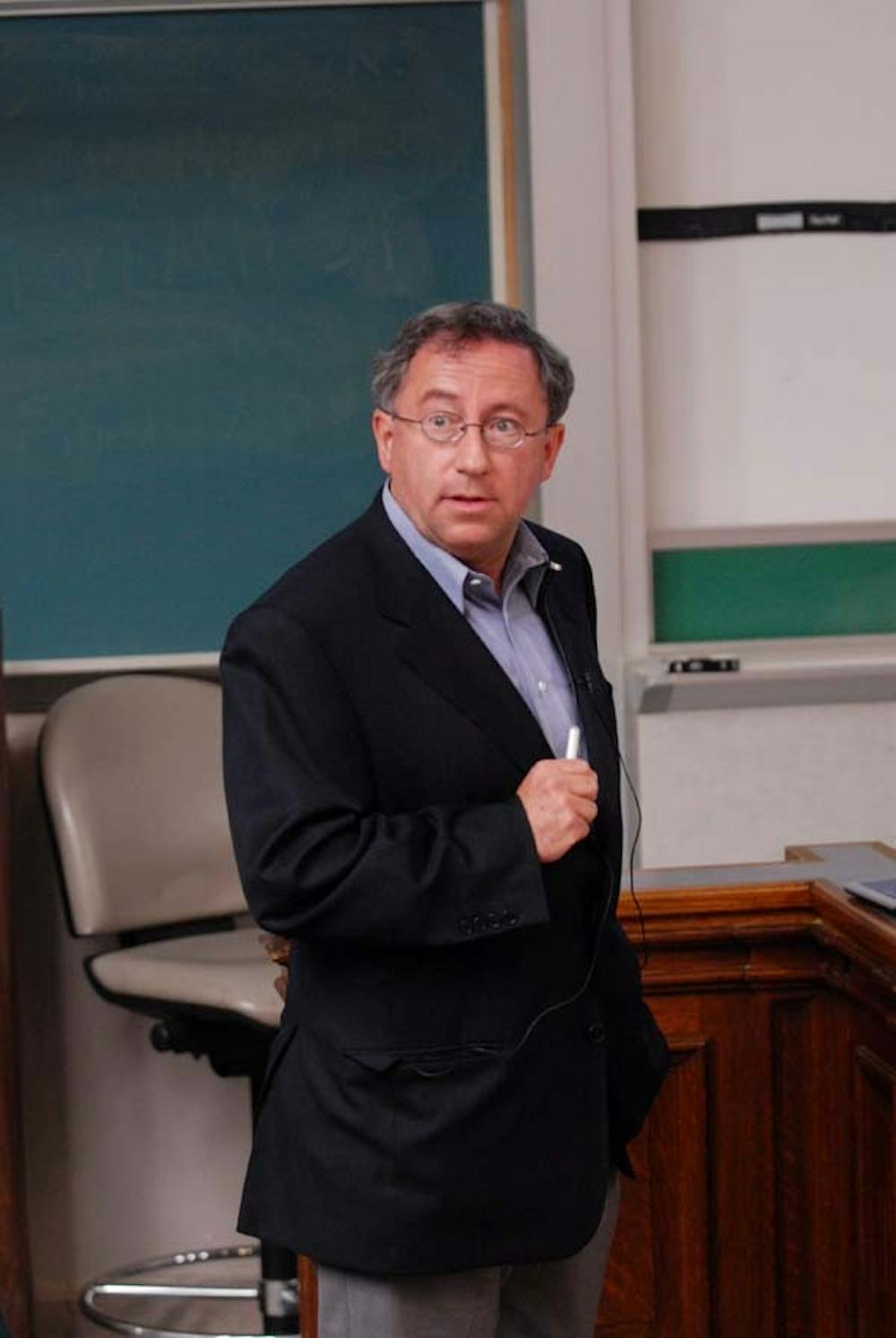It would be hard to imagine England without tea, Italy without tomato sauce or Egypt without cotton.
But without human intervention, these and other domesticated crops may never have reached the cultures with which they are now associated, according to Paul Gepts.
"Crops don't have legs," Gepts said.
Last night, Gepts, a professor of agronomy and range science at the University of California, Davis, delivered a talk entitled "The Impact of Human Travel on Agriculture" before an audience of about 150 people in Leidy Laboratories.
Gepts, though, pointed out that the talk would have been just as accurately titled "The Impact of Agriculture on Human Travel."
He drew upon diverse sources that included archeological excavation, chemical analysis and maps of human genetic variations in his research.
For instance, Gepts said, studying Egyptian wall paintings can reveal what was important to them: flax - not Egyptian cotton, which originated in the Americas.
Originally, agriculture encouraged people to stay in one location, Gepts said.
Today, productivity has enabled greater mobility, he said, because people no longer have to live where their food is made.
As a result, Gepts said, "Consumers have little or no inkling of what agriculture entails and how it is produced."
He added that the price of food does not reflect the true cost for society of producing it.
"We have to integrate the environmental [aspect], which is not being done right now," he said.
Gepts said he hopes his talk will encourage students to try to learn how their food is made.
"Whatever you put in your mouth, you ought to know where it's been, where it's come from," he said.
Gepts came to Penn as a guest of the Penn Humanities Forum, which brings speakers to campus to discuss various social topics, and the Biology department. This year's Forum topic is travel.
Maria Rakhovskaya, a Biology graduate student, said she expected Gepts to talk more about the environmental impact of food production.
His talk, however, did make her "more curious about how foods are grown and their impact on the environment," she said.



